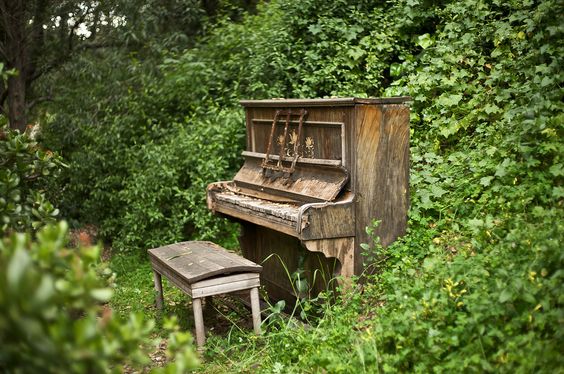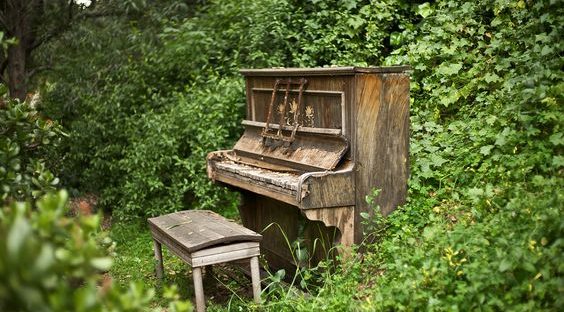Last week, I asked: If you could somehow magically have the life of your dreams, what would your piano teacher life look like?
(Read the entire prompt here.)
Thank you for the responses you posted, both here on the blog as well as on facebook. I enjoyed reading them.
I pondered the questions myself, and even did a little bit of journaling on the topic. I found it very beneficial, and want to share some of my realizations with you. If you found it fun to ponder the previous set of questions, I’d like to invite you to join me in exploring the additional questions below.
As I journaled about my ideal piano teacher life, I realized I’m already doing many of the things that I would consider part of my dream life as a piano teacher. What a wonderful reminder: I’m already living the dream! At times, I need reminders to count my blessings and take nothing for granted.
As you consider your own ideal piano teacher life, ask yourself: Which of these things am I already doing?
I’m happy with my current teaching schedule. There isn’t much I’d want to change about my teaching space. I’m happy to have a career I enjoy so much. I have much to be thankful for.
As you recall, the original prompt encouraged us to think big: If you could somehow magically have the piano teacher life of your dream, what would it look like?
I hope you journaled at least one thing that was completely outrageous. 🙂
I’ll tell you mine: I would love to be able to teach lessons outdoors, on a lovely acoustic piano, whenever the weather is nice. Have you ever wished this? I can’t tell you how many times I have!

Which aspects of your ideal piano teacher life are completely outrageous? If you didn’t describe at least one thing that was outrageous, why do you think that is? Why do you think you aren’t allowing yourself to dream big?
Most aspects of my ideal piano teacher life are not outrageous. Much of it is completely feasible. Which leads me to ask myself: Am I moving forward towards these goals? If I am, that’s great — I know I’m on track! If I am not, why not?
I’m always looking to improve the way I teach. I want to produce students who play accurately and wonderfully expressively. I want them to be independent enough to figure out how to play familiar as well as unfamiliar music, both by ear and through reading musical notation. I want them to be intelligent musicians, able to understand and describe music they are hearing.
I want to be a teacher who is always improving. Being on this journey to me right now means exploring and learning from what is known as Music Learning Theory (MLT). These days, there is so much MLT material that I’m reading, learning from, and experimenting with during my teaching. I’m immersed. And I love it.
Ask yourself: Which aspects of my ideal piano teacher life are completely reasonable goals? Am I moving towards these goals? If not, why not?
It feels great to be on-track with certain of my goals. I’ll admit that I also have goals that I feel less than successful with. I might SAY that I want accomplish a certain thing, but I know I’m just making excuses when I say I don’t have enough time. Either I must make it higher on my priority list, or I must come to terms with the fact that there are other things that are more important to me right now. Either way brings peace and contentment.
As a concrete example, I recently decided to hire a college student to help with house cleaning for a few hours each month. I want to create more time for certain projects, plus I love the peace of mind that comes with a clean home and workspace. 🙂
Clarifying our priorities is useful. It makes us happy to realize we are doing things that matter most to us.
When we realize, however that we really DO want to achieve a certain thing, it becomes necessary to ask: What steps can I start taking TODAY towards reaching this potential? What factors are preventing me from achieving my goals?
Many of us, I’m sure, would love to have two pianos in our teaching studios. If this is a high “want” on your priority list, what action could you start now to achieve this goal? In what time frame will you have a second piano in your teaching space?
At times, what we think are external problems are actually internal problems or dialogues holding us back.
Suppose you are a teacher whose ideal life would be to happily teach within certain hours and happily enjoy non-teaching hours with other priorities. For a teacher whose teaching schedule seems to be ruled by requests for “make-up” lessons, this might seem far from possibility. And the problem may seem external, since it has to do with the parents’ requests and the students’ schedules. However, the problem is actually related to setting boundaries — that is, a lack of setting boundaries. An internal problem.
It’s completely possible to become a teacher who is happy with one’s schedule of teaching hours and non-teaching hours. Can you brainstorm what would allow this to become reality? There are an array of possibilities.
There seems to be a tipping point for when we are actually ready to instigate lasting change in order to reach our potential. Once we reach a certain threshold, we will do what it takes to become who we want to be in particular aspects of our life. Then, it just becomes a matter of “how”.
The largest benefit I gained from considering what my ideal piano teacher life is increased clarity about my goals and priorities when it comes to the professional and personal sides of my life.
Having clarity about my priorities means I’m not running myself ragged keeping up with the plethora of new teaching ideas and resources available at our fingertips (i.e., on the internet) these days. Instead, I can choose to be discerning, evaluating for alignment with my top goals and priorities. Change is most worthwhile when it is in accordance with who I am and who I want to be as a piano teacher.
As a young new teacher, I told myself that I wanted to be the kind of piano teacher who was a member of professional associations and regularly attended workshops and conferences. Once I made this priority clear, I was able to make decisions accordingly as I wrote my studio policy (tuition rate, scheduling, etc.) that would help enable this to become reality.
They say that one’s priorities show in the way time and money is spent. It’s so true! Even as my studio was small and my income was still growing, I found a way to attend MTNA National Conferences. Even today, I am frugal in many areas of my life, yet I am more than willing to invest time and money to attend conferences and teacher trainings.
Who do you want to be as a piano teacher? What clarity do you have surrounding your top goals and priorities? What does the way you invest your time and money say about your priorities?
Thanks for thinking deep with me today!



1 thought on “What We Can Learn From Considering One’s Ideal Piano Teacher Life”